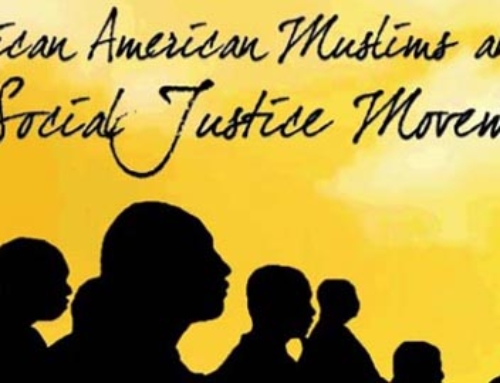By Abu Zayd
Muhammad, the final prophet of Islam, stated: “Every Muslim should give charity.” He was asked, “What if one cannot?” He replied, “Then he should go find work and help himself and others.” He was asked, “What if one cannot?” The Prophet, peace be upon him (pbuh), replied,“Then he should help someone in need.” He was asked, “What if one cannot?” He replied, “Then he should command what is right or good.” The Prophet (pbuh) was asked, “What if one cannot?”He replied, “Then at least he should refrain from evil, and that would be charity for him” (Bukhari, Muslim).
The spirit of charity, volunteerism, and service to others is a hallmark of Islam and among its greatest teachings. The Prophet (pbuh)never lost an opportunity to convey this message to others, and on this foundation he built a prosperous and charitable society oriented to public service.
Prophet Muhammad exhibited this generosity of character in his own life in a marvelous way. Before he became a Prophet, he earned the greatest respect and regard from his contemporaries by being al-Sidiq (the truthful) and al-Amin (the trustworthy). People confided in him, went to him to arbitrate differences, sought his advice, and even entrusted their valuables to his safekeeping. It was these ethical qualities in his early life that enabled him to be a successful Messenger later on. And so, when the first revelations came down to anoint him as a Messenger of the Divine and he rushed home fearful and full of great distress, his wife Khadijah, beloved supporter and confidante, consoled him and gave him confidence by reminding him of his impeccable character and service to others: “No, rejoice! By God, He would never disgrace you! For you uphold the ties of kinship, always speak the truth, bear the people’s burdens, help the destitute, honor guests, and serve those whose rights are due.”
This tradition of service continued throughout his prophet-hood and became an integral part of his mission and message. When he arrived in his adopted home of Madinah to establish the first Islamic society, his very first words to the people summed up that message: “People, spread peace among yourselves, uphold family ties, feed each other, and pray during the night while the rest of the people sleep, and you shall enter Paradise in peace!”
The formula was simple. Build a peaceful society which consists of service to others (your families and those who are needy) and service to God (in the form of prayers). That, in essence, is the road to salvation. The balance between the body and spirit, between personal and civic responsibilities, and between spirituality and the mundane affairs of life is wonderful guidance bequeathed by Islam to humanity.
As part of this prophetic lesson, Prophet Muhammad (pbuh) emphasized the need for financial independence so that one can be in a position to help others. Charity, primarily in the form of donations, is a responsibility of every believer. This can be monetary donation or other type of material provision, depending upon the need. And for those unable to afford such, the Prophet (pbuh) strongly urged them to find work to earn something with their own hands so that they could help themselves and then others. In other words, tangible donations are among the greatest forms of charity and financial independence is, therefore, a desirable value in Islam.
Yet, for those who truly are not in a position to give material assistance to others, then the Prophet (pbuh) recommended they find some other means to help someone in need. Financial assistance takes precedence but if that is simply not possible, then service to others is a priority.
The principle of charity is so important that no single person is exempt from practicing it, even those who cannot afford it. For those who are neither in the position to give nor in a position to help, then they were urged to at least enjoin something that is good or virtuous. That could entail, for example, teaching someone something beneficial, speaking out for social justice, or promoting some worthy cause. Finally, those not in a position to practice any of these approaches must, at the very least, stay away from wrongdoing of any sort which indirectly protects people from that potential harm.
So charity and public service should involve everyone in a sound and healthy society. There are no exceptions because there are many forms of giving and helping. In our current political atmosphere where public assistance and providing for those in need have been assailed by some in the public discourse, these lessons on charity are very timely. There are, indeed, hopeful signs as the majority has rejected a selfish and self-serving political agenda—as the recent elections have shown. And in the aftermath of Hurricane Sandy, we recognize once again that we live in difficult times; and that the tenuousness of this life is best dealt with by engaging and cooperating with those whose spirit of charitableness is ever ready to provide support and relief to those in need.







